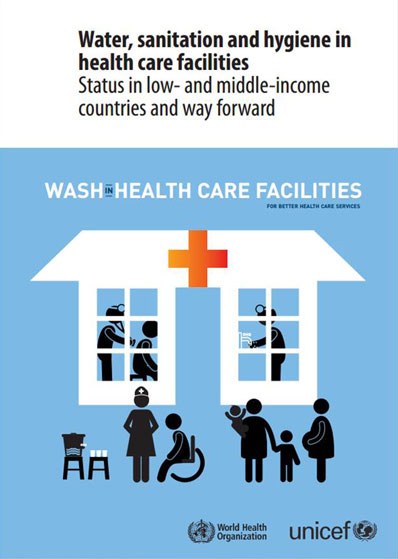Report reveals alarming lack of water, sanitation and hygiene in health care facilities; outlines way forward
March 18, 2015
A new World Health Organization (WHO) and UNICEF report, released March 17, calls for immediate action to improve water, sanitation and hygiene (WaSH) in health-care facilities in low- and middle-income countries and outlines a way forward.
Ryan Cronk and Dr. Jamie Bartram of The Water Institute at the University of North Carolina at Chapel Hill, part of the Gillings School of Global Public Health, authored the report. They assessed available WaSH data from health-care facilities in 54 low- and middle-income countries and found that 38 percent of those facilities lack an improved water source, 19 percent lack improved sanitation, and 35 percent lack soap for hand washing, situations that impede even basic health-care services such as child delivery.
The report, “Water, Sanitation, and Hygiene in Health Care Facilities: status in low- and middle-income countries and way forward,” is the first comprehensive, multi-country analysis on water, sanitation and hygiene services in health-care facilities. The report calls for action at global, national and facility levels to push toward 100 percent coverage of these services in health-care facilities through new policies, collaboration, monitoring and training.
Researchers examined data from 66,101 facilities for the report. Data were not available in many countries, which created a barrier to better understanding and addressing those countries’ needs.Lack of water, sanitation and hygiene services in health-care facilities causes infection risk within the very institutions to which patients have come to expect healing. Without WaSH services, patients are put at risk of infection unnecessarily and often have to exit the facility to obtain a drink of water or to relieve themselves. Furthermore, staff members lose an important opportunity to demonstrate safe sanitation and hygiene practices that can improve community habits and health.
Improvements to services can and should begin immediately, the report says, and will require leadership from the health sector, technical advice from water and sanitation experts, and political commitment from governments.
Jamie Bartram, PhD, director of The Water Institute at UNC-Chapel Hill and Don and Jennifer Holzworth Distinguished Professor in the Gillings School’s Department of Environmental Sciences and Engineering, and Ryan Cronk, doctoral student in environmental sciences and engineering, authored the report.
“It is shameful that there are health-care facilities failing to provide a safe environment, compromising the health of those who turn to them for care,” Bartram said. “We need health-care professionals—from the health worker in charge of the smallest health post to the CEO of the most sophisticated hospital—to take responsibility for delivering on the medical maxim primum non nocere [‘first do no harm’].”
“Water, Sanitation, and Hygiene in Health Care Facilities: status in low- and middle-income countries and way forward” is available online.
Share
Gillings School of Global Public Health contact: David Pesci, director of communications, (919) 962-2600 or dpesci@unc.edu.



